Judith Jones Was More Than Julia Child's Editor
A new book looks at a long and successful literary life
Hello, and welcome to the CulinaryWoman Newsletter! This is our anniversary month. CW turns four years old on June 28.
Welcome to new readers who found us through friends like and or by hearing me on public radio. I’m also grateful to our returning readers — thanks for your interest in the newsletter.
Remember that I post the newsletter as a podcast, too, in case you’d rather listen than read. It publishes on Sunday afternoons.
This issue centers on a new book that any writer will find enticing. And, if you’d like to know how cookbooks come about, it will answer your questions, too.
The Woman Who Discovered Julia Child And Many Other Literary Lights
Authors and playwrights are the subject of many types of documentaries, books and magazine articles. Editors rarely get as much attention, with only a few exceptions.
When I was growing up, A. Scott Berg published his book, Max Perkins: Editor of Genius. It was the story of the man who turned Fitzgerald, Hemingway and Wolfe into household names. Since his death in 1947, Perkins has been elevated almost to the same level as the authors whose work he turned into best sellers.
In the culinary world, Perkins has a parallel in Judith Jones, who is the subject of a new book called The Editor: How Publishing Legend Judith Jones Shaped Culture In America.
In it, Sara B. Franklin writes, “The scope of editors’ role is little understood, even by the most avid readers. Editors’ work extends far beyond moving words around on a page. They are shepherds of individual authors’ careers, and responsible for the literary landscape as a whole. They must, at once, remain laser focused on their writers’ specific needs, while keeping abreast of shifts in the culture at large. They are alternately called upon to be confidants and careful readers, patient coaches, and taskmasters.”
She continues, "The role requires a business mind and a capacity for intimacy. A good editor is agile enough to navigate between these demands and sensitive enough to understand which to inhabit, and when. To possess such a wide array of skills is rare; to choose to spend one’s life in service of the role is an act of devotion.”
In the movie Julie and Julia, Jones is depicted as the small woman who received the bloated manuscript that had already been rejected by one publisher, and who helped Julia, Simone Beck and Louisette Bertholle craft it into Mastering The Art of French Cooking. Even more than 60 years after publication, Mastering The Art remains Amazon’s No. 1 best seller in French cooking.
But as the reader discovers, Jones was a much larger literary figure. First, she was responsible for elevating cookbooks beyond basic guides for housewives to a respected genre. We found out how much recently. Cookbook sales soared during the pandemic, and have leveled off a little, but billions of dollars of them are sold each year, including classic titles that Jones edited.
She was the editor or was involved in projects by Lidia Bastianich, Craig Claiborne, Elizabeth David, M.F.K. Fisher, Marcella Hazan, Madhur Jeffrey, Jacques Pepin, among others.
Beyond culinary, Jones also worked with notable writers including Sylvia Plath, Jean-Paul Sartre, and Anne Tyler. She is credited with finding, although not editing, the Diary of A Young Girl by Anne Frank. She read it in French and insisted that her bosses at Doubleday publish an English version.
But it is because of Julia that we really know that Jones existed, and now Franklin is giving her time in the spotlight.
How they met
The story of how Franklin and Jones met is fascinating in itself. As she recounted for Food52, “In 2013, I was offered the chance to spend several months collecting her life’s oral history. The only catch was that we had to get along, which, I had been warned, wasn’t always easy with Judith.”
Jones invited Franklin to her Upper East Side apartment, which was crammed with stacks upon stacks of books (a kindred spirit). Her kitchen had the same kind of peg board that Paul Child devised to hang Julia’s cookware. Her coffee table was covered with manuscripts and book proposals. The meeting was less an interview than a long conversation, and the pair ultimately agreed to work together.
When Jones died in 2017, her stepdaughter asked Franklin if she would like to look through her papers, which filled two rooms. The correspondence, photographs, cookbooks and notebooks stretched back to the 1930s. They “deepened my understanding of who she’d been as both a person and an editor,” Franklin writes.
Jones was almost always framed in conjunction with Julia Child. “Nowhere could I find a depiction of Judith that even suggested the reaches of her curiosity and sophistication, her complexity and acumen, her savvy and her guile; the extent of her effect on our lives—what we cook and eat, the stories we read and the ones we tell—and the literary and publishing communities at large. This book is my attempt to give the editor, the woman, her due,” Franklin writes.
Bringing The Editor to the screen
I would love to see The Editor transformed into a movie, or perhaps a full-length documentary, since Hollywood is likely to simplify and sugar coat aspects of Jones’ life. She appears as a character in the HBO version of Julia Child’s life, and was the subject of a short PBS program.
There could easily be three acts to the story that Franklin lays out in her book. The first could be how a young woman was able to grow into a position of authority in the publishing world, which was a patriarchy during the post-war years (some might argue that certain publishers are still that way).
The second section could be Jones’ dealings not only with Julia but with the other authors in her collection. There also would need to be some discussion of the authors that she underestimated. For instance, she had the opportunity to sign the late Alice Munro, who recently died, but passed on it.
The third section is Jones’ own story, and how she followed her famous authors with books of her own. I’ve read many of them, including The Tenth Muse: My Life In Food and The Pleasures of Cooking for One. Certainly, it’s well past time for Jones to receive the credit that Franklin’s book gives her.
The Editor brings us a wonderful history of legendary authors and discoveries in a time before social media, influencers and YouTube videos. Time marches on, of course, but it’s good to understand how these giants of literature and cookbooks had a champion.
In Detroit A Squabble Over Pop Ups
Framebar in suburban Detroit is well-known as an incubator for pop up chefs. Several of my friends have held events there through the years. Framebar has given chefs from different parts of the area a chance to demonstrate their skills to an upscale audience that they might not otherwise reach.
But two popups recently pulled out of events they had planned at Framebar, according to Eater Detroit. The dispute seems to center on the amount of profit the popups expected to make from their events. On Instagram, Khana and Street Beet said that they were canceling with the venue due to financial concerns.
Frame’s management, owners Joe and Cari Vaughn, told Eater that the events provide pop-ups a glimpse of what they should expect it to cost to operate a restaurant, without the significant financial risks associated with opening a full-scale restaurant from scratch.
“We are a restaurant incubator, not a bar that hosts a food truck. That’s the difference between us and a bar that hosts pop-ups,” says Joe Vaughn, a longtime metro Detroit editorial photographer. “The people that understand and get what they need out of it really embrace what Frame and Framebar is.”
Read the entire article, which includes the contentions from both the pop ups and the owners. One thing is clear: it is hard for anyone to make money in the restaurant business these days.
Behind The Scenes At Top Chef Wisconsin
Rachel Bernhard, the dining writer for the Milwaukee Journal Sentinel, was invited to be a guest at three of the episodes that Top Chef recently filmed as part of its series in Wisconsin. She told readers what it was like to take part in an episode that featured a classic Door County fish boil.
Right off, Bernhard says the show was fooling viewers. The episode didn’t take place in Door County; it was filmed at South Milwaukee’s Grant Park Beach. “Admittedly, it did get a glam makeover for the taping. There were fewer rocks in the sand than I’d ever seen, and any unsightly weeds had been stripped from the beach,” she wrote.
Moreover, guests were held up for an hour for an unspecified reason. It turned out one of the chefs cut herself and had to be hustled to urgent care.
She also didn’t get to eat all the chefs’ dishes; she was given a card with three numbers, allowing her to eat the food prepared by chefs Danny, Dan and Manny.
It sounds like the taping was fun and if you have the chance to take part in a Top Chef episode, don’t turn it down.
Season Three Of The Bear Is On The Way
Last week, FX released the trailer for Season Three of The Bear. If you’ve kept with the show for the first two seasons, you’ll see many familiar and now award-winning faces from the show. And, the stress level remains high.
Now that The Bear is a bona fide phenomenon, Chicago’s restaurant scene is reaping the benefits of visitors who want to see some of the places where the show is filmed. I’m happy to see some of my favorites getting the attention.
Keeping Up With CulinaryWoman
For Food & Wine, I reported on a different take about grocery prices. It’s been widely reported that they have risen 25 percent since 2019. But if you factor in the price of gasoline, a quick trip to the store is actually up 31 percent.
The folks at Texas Standard on Texas Public Radio invited me on to talk about EV battery plants, which was the subject of my recent essay in the Boston Globe. EVs are a big topic in Texas because of the presence of Tesla, but the battery plants are becoming a big focus of the economic development world.
On Monday, I’ll be back for our paid subscribers with a look at one of the most delightful shows this spring: Ina Garten’s Be My Guest. I was luckily enough to be Ina’s guest (in her home, not on the show) and I’ll share a few inside tidbits about what viewers saw.
Would you like to upgrade and read it? Click here or look up in the right hand corner of this post.
Our weather in Michigan has cooled off a little and I started planting my garden. If you’re outside this weekend, or just taking a break inside, I hope you’ll relax. See you soon!

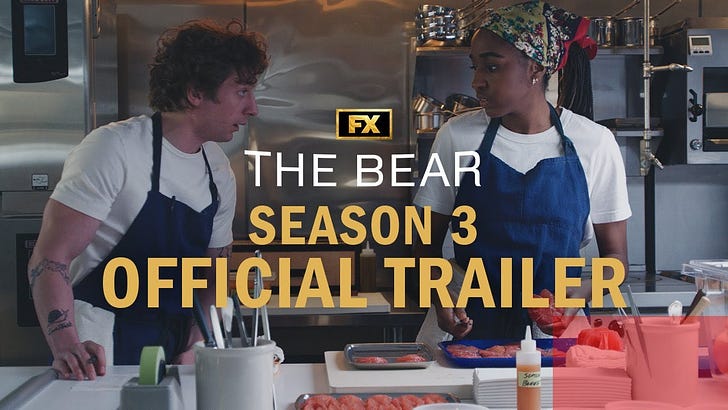


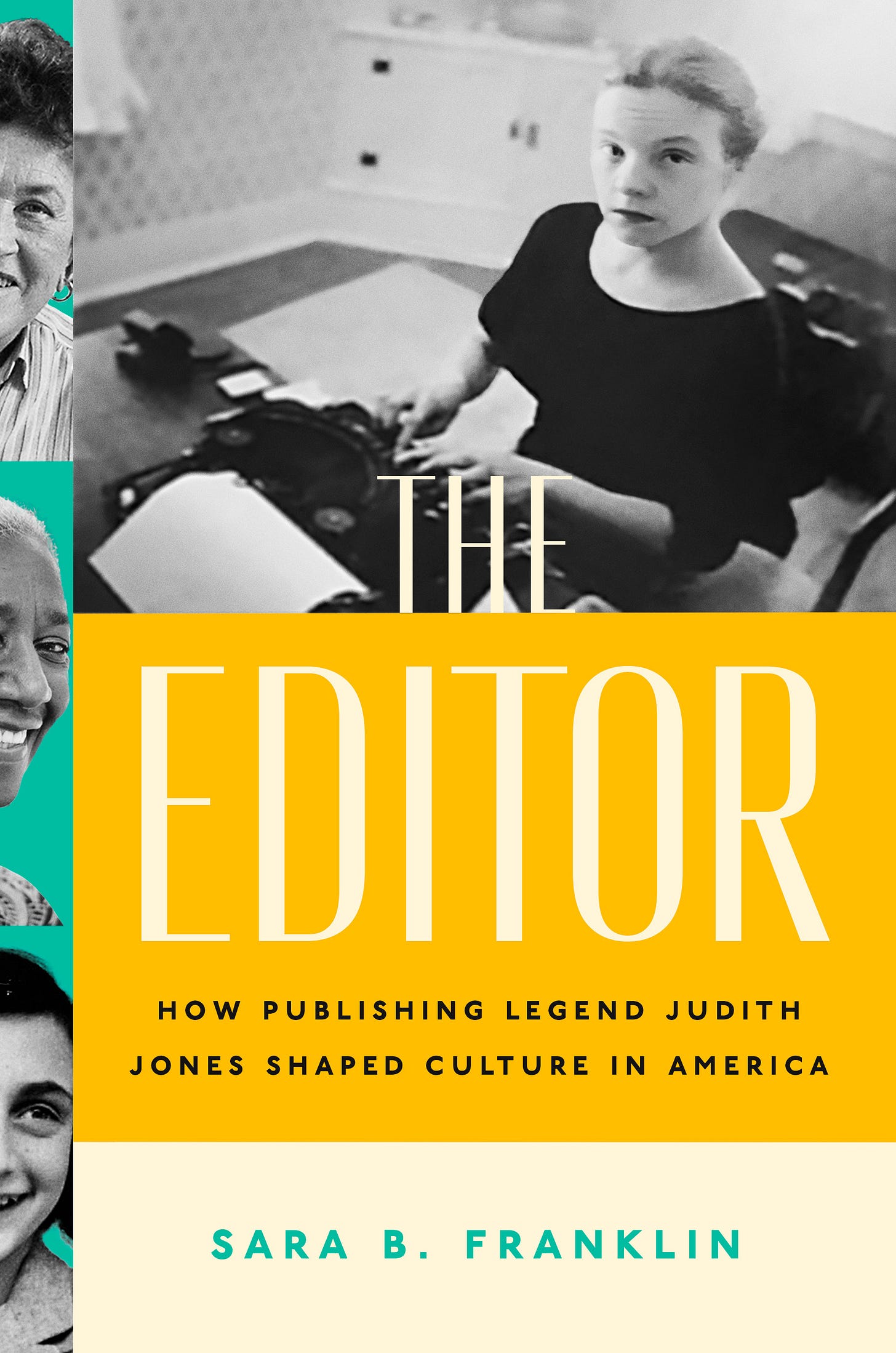
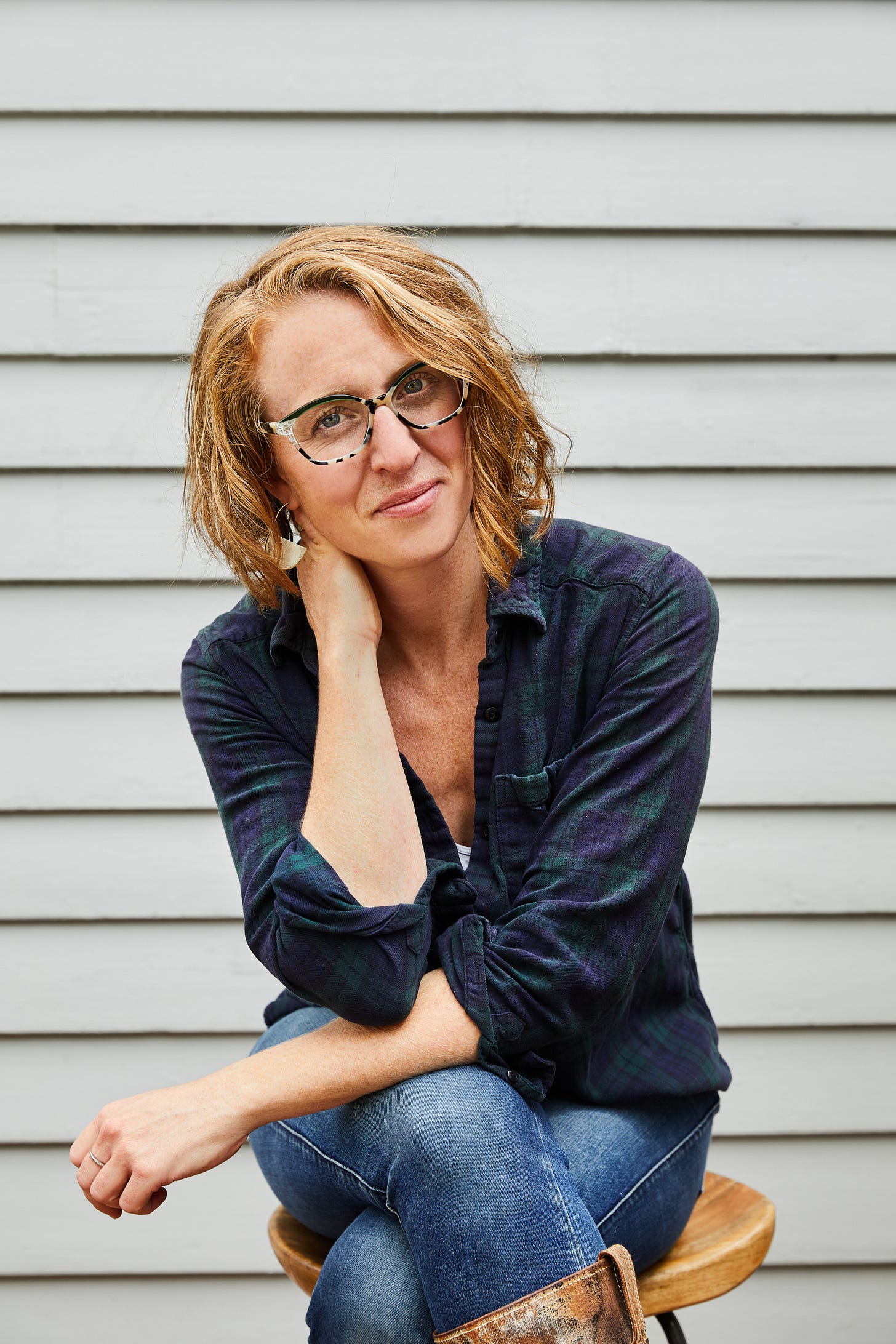
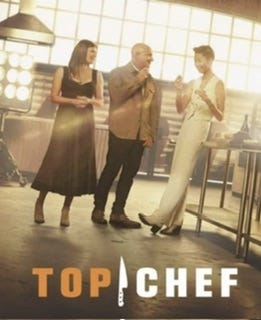
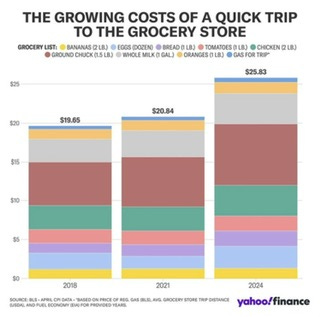
“The Editor” sounds like a fascinating book. I often find learning what happens “behind the scenes” can be as interesting, and sometimes more interesting, than what is visible to us. And yes, I bet a movie, miniseries, etc. about Judith Jones could be very interesting (if done well).
I love your review of The Editor. I also liked Franklin's book, one that she edited, about Edna Lewis. She spoke once at SoFAB. She is a very perceptive person.